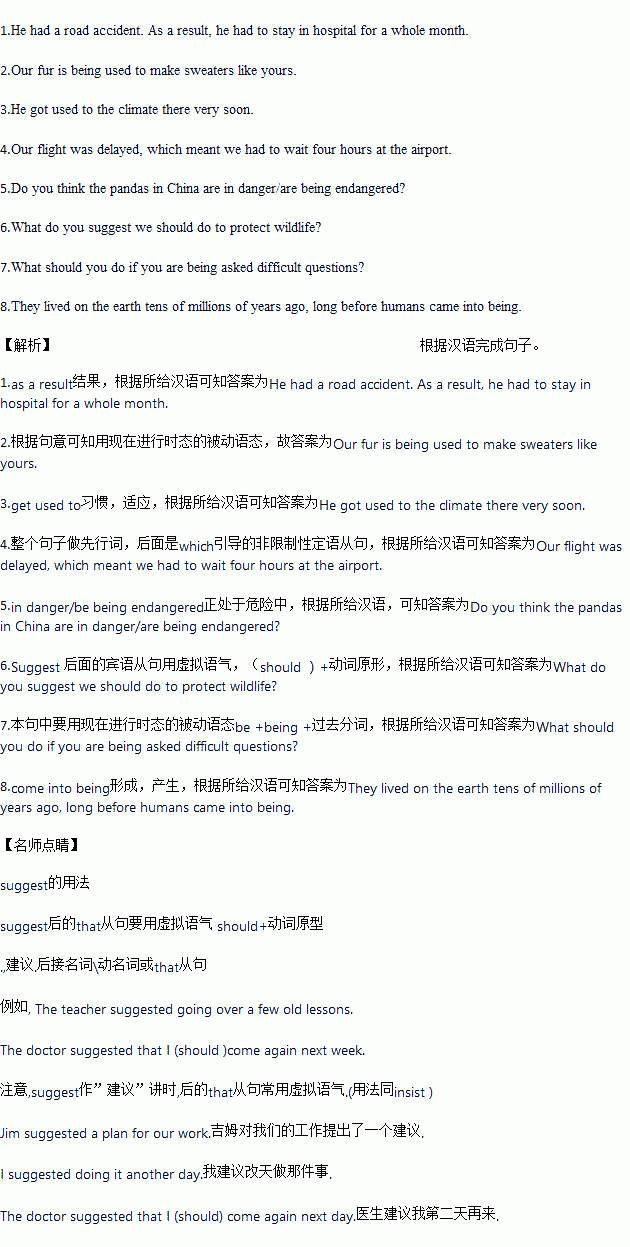题目内容
1.他出了一次车祸,结果只得在医院里躺了整整一个月。(as a result)
2.我们的毛皮用来制作像你穿的那种毛衣。(被动语态)
3.她很快就适应了那里的天气。( get used to)
4.我们的航班被推迟,这意味着我们要在机场等待4个小时。(delay)
5.你认为中国的熊猫正处在危险中吗?(in danger)
6.请你建议我们应该做些什么来保护野生动植物你呢?(suggest)
7.当你被问到难题的时候,你应该怎么做?(被动语态)
8.早在人类产生之前,他们就在地球生活了几千万年。(come into being)
Monday | ||
8 —10 a. m. | TECHNOLOGY Information Technology (IT)—Using the Internet In this lesson, students learn how to surf the internet safely and effectively. There will also be information about using different search engines. | |
10:00 a. m. | DRAMA Students learn the play that the teacher gave before class. During this lesson, students will have the chance to act out roles with other students. | |
11:00 a. m. | PAINTING WITH WATERCOLOURS For most of this term, students learn how to use watercolours properly to make pictures. If the weather is good, the lesson may take place outdoors. | |
2 — 4 p. m. | SPORTS Students learn about the skills in a certain sport by watching video to see real action from past games. And then, students will play a short match lasting 45 minutes. This week, the sports are football (for boys) and tennis (for girls). | |
| HOMEWORK IT—the teacher will give students websites to look up at home. (about 20 minutes) Drama –students have to learn a part for the next lesson (about 40 minutes). | |
1.At _______, students are having a painting lesson.
A. 11:35 a. m. B. 4:30 p. m.
C. 10:30 a. m. D. 2:15 p. m.
2.Students should prepare a new part of _______ ahead of time as their homework.
A. Technology B. Painting
C. Sports D. Drama
3.The information in the table is mainly for students to _______.
A. choose teachers B. do their homework
C. take classes D. organize hobby groups


 ),并在其下面写出该加的词。
),并在其下面写出该加的词。